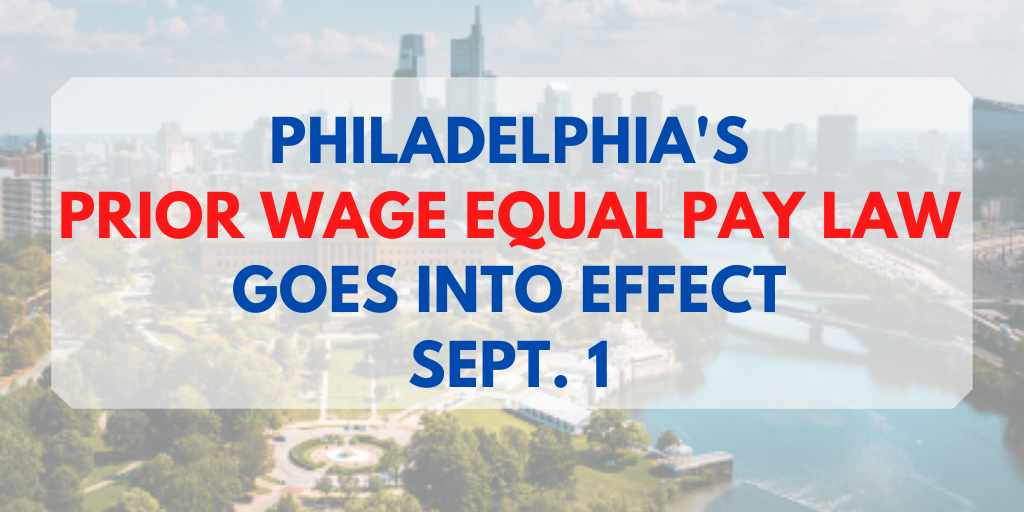
The City of Philadelphia announced that the Philadelphia Commission on Human Relations (PCHR) will begin enforcing the Wage Equity Ordinance on September 1, 2020.
That means that as of September 1, it is illegal for employers to ask about or require you to disclose your wage history or to use that information to determine your wages when you apply for a job in Philadelphia. For the purposes of this law, wages are defined as all earnings, including compensation beyond salary such as benefits and bonuses.
Read the text of the ordinance here.
This Anti-Discrimination Law Will Help Narrow Discriminatory Wage Gaps
“We have long argued that a prospective employer should not be allowed to set wages for a job based on an applicant’s prior wages because doing so can perpetuate wage discrimination throughout an entire career,” says WLP managing attorney Terry L. Fromson, who testified and filed a brief in support of the ordinance. “The research makes that clear. Without the protection Philadelphia’s new ordinance provides, gender and racial wage disparities tend to increase throughout a worker’s lifetime.”
“This ordinance is similar to many workplace anti-discrimination laws we’ve had for a long time that prohibit employers from asking questions that enable discriminatory decisions,” says WLP director of policy and advocacy Amal Bass, who co-authored a brief filed in support of the City of Philadelphia after local business interests sought to block its implementation with Fromson and Helen Norton of the University of Colorado Law School. “Wages should be based on an applicant’s qualifications and the job’s responsibilities, not other irrelevant and potentially discriminatory factors such as what they were paid at a previous job.”
“The goal of the Ordinance is to help close the wage gap for women and people of color. Philadelphia was one of the first jurisdictions in the country to pass such a measure. Mayor Jim Kenney signed it into law on January 23, 2017, following unanimous passage by City Council. The legislation was championed by former Councilmember William Greenlee, who introduced the measure on September 29, 2016.”
“Recent studies show that jurisdictions with salary history bans are seeing increases in salaries for women and people of color when they change jobs, proving that these laws actually work and strengthening the case for passing them,” says City Solicitor Marcel S. Pratt.
Local equal pay ordinances are especially important because the Pennsylvania Legislature has so far refused to close loopholes in the state Equal Pay Act, which has not been updated since 1967 when it was amended to apply to fewer people.
What To Do If You Need Help
If you believe an employer is violating this law, contact the Philadelphia Commission on Human Relations.
If you are unsure of your rights or need assistance, you can get in touch with us by leaving a message on our Telephone Counseling & Referral Service at 215.928.9801 x5760.
The Women’s Law Project is a public interest law center in Pennsylvania devoted to advancing and defending the rights of women, girls, and LGBTQ+ people in Pennsylvania and beyond.
August 2020: Our physical offices are still closed due to the pandemic but we are OPEN and working to serve your needs. Contact us here. Sign up for WLP’s Action Alerts. Stay up to date by following us on twitter, Facebook, and Instagram.
We are a non-profit organization. Please consider making a one-time donation or scheduling a monthly contribution.

